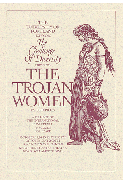This material was contributed by Chris Boone, Angela Johnston, Julie
Lannon, Adam Tattle, and Brian Vacheresse.
For another
site on this topic.
|
PAGE
|
Reference to literature,
etc.
|
Description
|
|
12 & 164-5
|
"Keep Your Head Down Fritzey Boy"
|
Song: "Fritzey Boy" refers to a German soldier.
|
|
12
|
"Tea-Dance partners do the Castlewalk to orchestras
of brass cornets and silver saxophones"
|
A Dance most popular in the early 1900's.
|
|
33
|
"Clifford also knew an obscene version of 'Oh, Susannah!',
which he sang in a high, clear tenor with exactly the same pitch of intensity
he'd just applied to the Old kml;Hundredth."
|
'Oh, Susannah!' is a song sung by young children.
|
|
72
|
"On the outskirts of town there was an asylum for
the mad- (Van Gogh had been one of its patients)."
|
Van Gogh painted many impressionistic pieces, which
included many natural settings, flowers, and portraits.
|
|
86
|
"It contained a panel of stained glass."
|
These fragments were from a church, and were mainly
religious pieces.
Findley's research included reading letters from
his uncle who was in the war. His uncle mentions a dugout with a stain
glass door.
|
|
45
|
"Taffler had long since gone and the rumour was he'd
been returned to France, although his picture appeared in the Canadian
Illustrated..."
|
Canadian Illustrated was a Canadian magazine
|
|
35
|
"Clifford sang. 'Bring me, oh bring me a cup of cold
water, and cool my temple...'"
|
This is a song
|
|
56
|
"Any storms that troubled it got there by way of
Joseph Conrad and the Boys' Own Annual."
|
Joseph Conrad:
 Jòzef Teodor Konrad Korzeniowsi(1857-1924).
A Polish writer who joined the British Merchant Navy in 1886.
Jòzef Teodor Konrad Korzeniowsi(1857-1924).
A Polish writer who joined the British Merchant Navy in 1886.
|
|
57
|
"...four blond men stood up and sang and thumped
the entire score from Pinafore."
|
 Opera that opened in the late 1800's. Written by
Gilbert and Sullivan.
Opera that opened in the late 1800's. Written by
Gilbert and Sullivan.
|
|
|
65
|
"...he remembered that somewhere in Chums-as a boy-he'd
see a picture of a cowboy shooting his horse behind the ear."
|
This painting represents the only horror Robert has
ever actually faced. It shows his inexperience.
|
|
69
|
"He read her Huckleberry Finn."
|
Huckleberry Finn was a classic, and was read often
during those times.
|
|
89-90
|
"...by quoting Clausewitz as follows: 'Clausewitz
says the true basis of combat is man to man. He says for that reason an
absurdity...'"
|
The horror of combat is being pushed to the background
by Clausewitz, as man to man combat is truly a horrific thing.
|
|
92
|
"That way, he says, the whole war can be carried
out as a serious, formal minuet..."
|
The description of war as a thing of beauty is a
common method of glorifying the horror.
|
|
141
|
"Oh! I had bits of Montervedi-Mozart-Bach all jumbled
up."
|
Montervedi, Claudio Giovanni Antonio (1567-1643)
Italian Composer.
Mozart, Wolfgang Amadeus (1756-91) Austrian composer.
Bach, Carl Philipp Emanuel (1714-88) German Composer.
|
|
155
|
"...said it sounded like the chorus from the Trojan
Women."
|
A musical written by Michalis Cacoyannis.

|